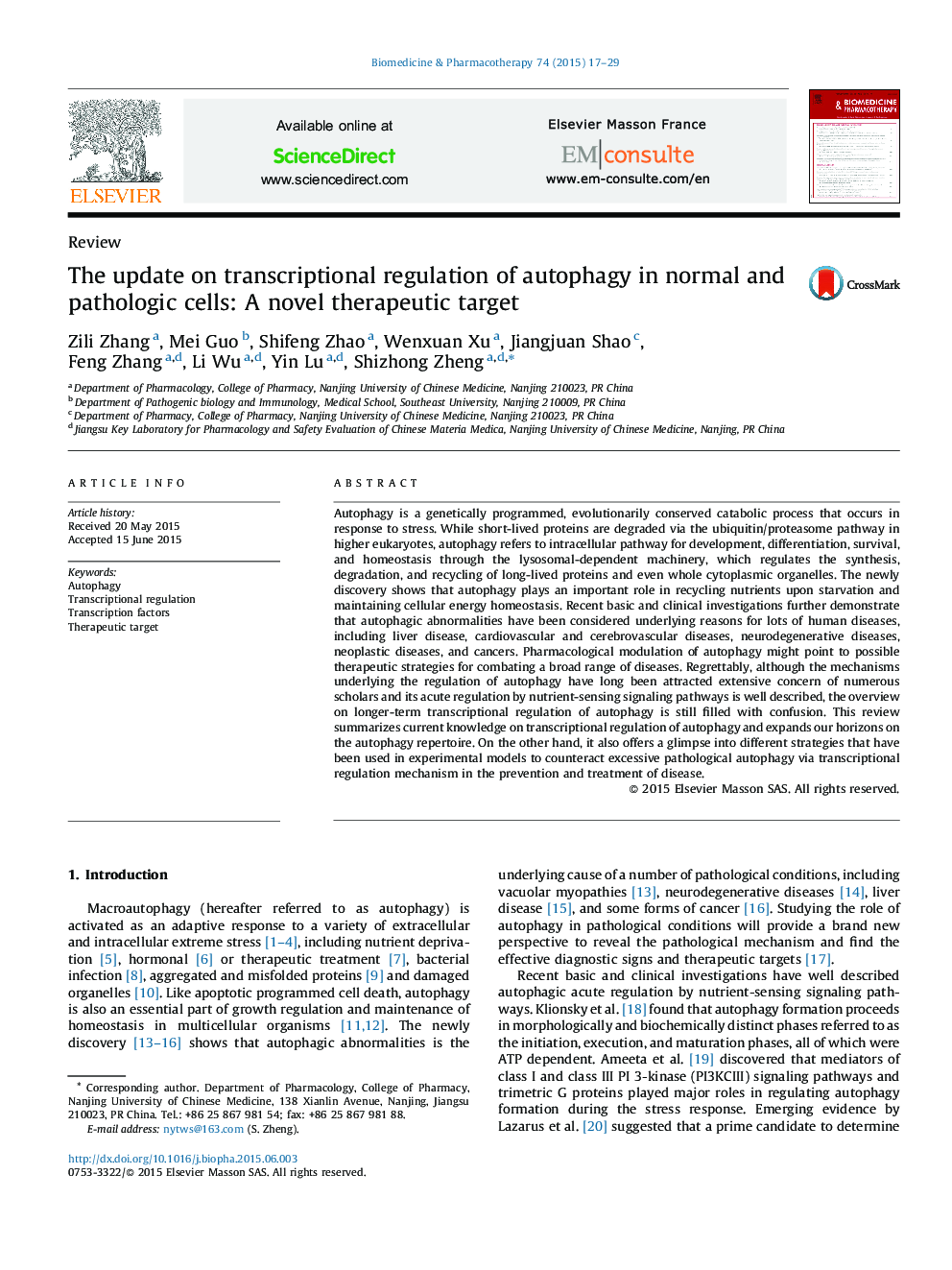| Article ID | Journal | Published Year | Pages | File Type |
|---|---|---|---|---|
| 2524935 | Biomedicine & Pharmacotherapy | 2015 | 13 Pages |
Autophagy is a genetically programmed, evolutionarily conserved catabolic process that occurs in response to stress. While short-lived proteins are degraded via the ubiquitin/proteasome pathway in higher eukaryotes, autophagy refers to intracellular pathway for development, differentiation, survival, and homeostasis through the lysosomal-dependent machinery, which regulates the synthesis, degradation, and recycling of long-lived proteins and even whole cytoplasmic organelles. The newly discovery shows that autophagy plays an important role in recycling nutrients upon starvation and maintaining cellular energy homeostasis. Recent basic and clinical investigations further demonstrate that autophagic abnormalities have been considered underlying reasons for lots of human diseases, including liver disease, cardiovascular and cerebrovascular diseases, neurodegenerative diseases, neoplastic diseases, and cancers. Pharmacological modulation of autophagy might point to possible therapeutic strategies for combating a broad range of diseases. Regrettably, although the mechanisms underlying the regulation of autophagy have long been attracted extensive concern of numerous scholars and its acute regulation by nutrient-sensing signaling pathways is well described, the overview on longer-term transcriptional regulation of autophagy is still filled with confusion. This review summarizes current knowledge on transcriptional regulation of autophagy and expands our horizons on the autophagy repertoire. On the other hand, it also offers a glimpse into different strategies that have been used in experimental models to counteract excessive pathological autophagy via transcriptional regulation mechanism in the prevention and treatment of disease.
